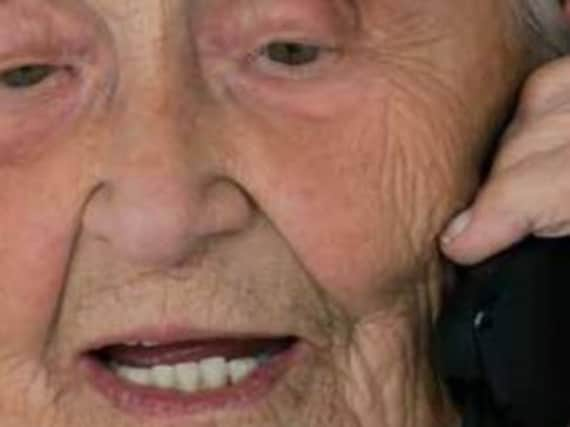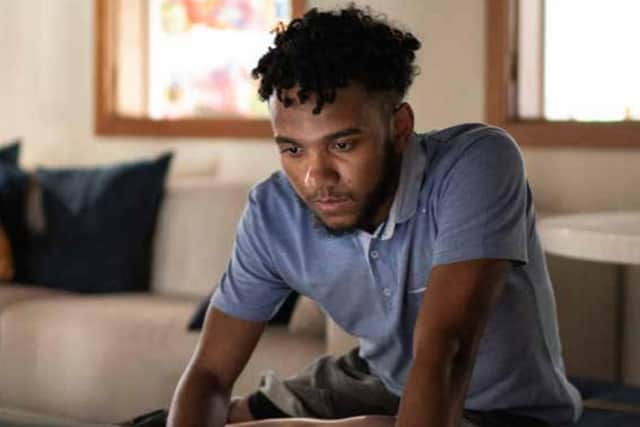Rise in 'Bad Samaritan' coronavirus related crimes


Help has been coming in many forms, from making masks and other PPE for the NHS, shopping for vulnerable neighbours and setting up support groups for those with mental health struggles.
However, Lincolnshire Police has reported that the coronavirus has also seen a rise in the exploitation of vulnerable people, and on the unease, uncertainty and anxiety that many of us are understandably feeling at this time.
Advertisement
Hide AdAdvertisement
Hide AdThese so-called ‘Bad Samaritans’ have been reported to be conning people into thinking they are helping them, or taking advantage of people’s good nature and their desire to help others.


Statistics from independent support charity Victim Support have revealed that the fraud rate in Lincolnshire has risen by 33 percent during the Covid 19 lockdown.
Fraudsters inflict misery on millions and fraud costs the UK economy a staggering £193 billion per year.
Many of these scams are not new, but with more time spent at home, scammers and fraudsters also have more chances to contact us – either on our doorstep, by phone, or online.
Advertisement
Hide AdAdvertisement
Hide AdVictim Support is dedicated to supporting people affected by crime and traumatic incidents in England and Wales.
An Independent Victim Advocate for Victim Support here in Lincolnshire, said that the charity's aim during this new lockdown is to make as many people aware of these crimes as possible.
She said: "With the victims I’ve dealt with, a lot of these crimes are not being reported and not even telling their friends or family because they are embarrassed.
“We want to say to people who have been a victim of these crimes that we are here for them and we have a completely confidential service and they don’t even have to report it to the police, but they can talk to us rather than end up in a spiral of anxiety.
Advertisement
Hide AdAdvertisement
Hide Ad“Anyone can be affected by these crimes, especially the elderly and vulnerable, and it’s a difficult message to get out there, especially now we're in lockdown again.”
Victim Support has set out some tips and advice on how to avoid falling victim to scammers and con artists.
If you are unable to easily get to the shops, you may accept an offer from someone to do your shopping for you.
Although most people may be honest and well-intentioned, sadly not everyone is. They may take money or your cash card, but not return with your shopping. Scammers may even claim to be from helpful or reputable organisations or charities, offering help, taking money and not coming back. It’s always best to ask someone who you know and trust to help you, such as a family member or close friend. However, when this isn’t possible and you take up a stranger or acquaintance on their offer, set some boundaries and stick to them.
Advertisement
Hide AdAdvertisement
Hide AdAsk for ID If someone claims to be from an official organisation like the British Red Cross, such as an ID card. Do not let them into your home before seeing it. If you’re at all suspicious, ask them to leave. You can always call the organisation and ask them if they have helpers operating in your area before handing over any money.
If someone offers to help with shopping or buying medication, request that you pay when they return. People who are genuinely trying to help will generally understand why this is a good idea.
Ask to see a receipt showing how much your shopping cost before handing over money. If they are hesitant to do this, explain that you are just being cautious and want to make sure they are given the right amount.
Lots of local Facebook sites are being set up to help neighbours. Although this can be helpful, please be careful about the suggestions given on these groups. For example, some community groups are asking people who need assistance to put a red card in their window. Although this initiative is well intentioned, it can make you a target for fraudsters and scammers. Victim Support therefore do not recommend that these are used.
Advertisement
Hide AdAdvertisement
Hide AdIf something seems too good to be true, it probably is. The outbreak of coronavirus has seen shops run out of lots of supplies such as hand sanitiser, face masks and toilet paper. As a result of shortages you might be shopping online, so look for a name you know. You can generally trust the larger supermarket chains, but make sure you’re on their real website.
If you do decide to buy on smaller websites, do some research first. Check if they have positive reviews for their website, and how long they have been selling online. If they have only just started selling and they have no reviews, there is a higher chance it could be a scam.
Look out for sellers offering prices at well below the normal retail price. If it’s too good to be true, it probably is. Seek advice from others If you’re not sure, ask a trusted family member or friend for advice before buying.
If you do decide to purchase a product online, use a credit card as most credit cards provide protection.
How to get help
Advertisement
Hide AdAdvertisement
Hide AdContact Victim Support Lincolnshire on 0300 3030532 or call the Victim Support out of office hours Supportline on 0808 168 9111.
Alternatively, contact the Lincolnshire Police & Crime Commissioner Victim Lincs team on 01542 947510 or visit the website at www.victimsupport.org.uk